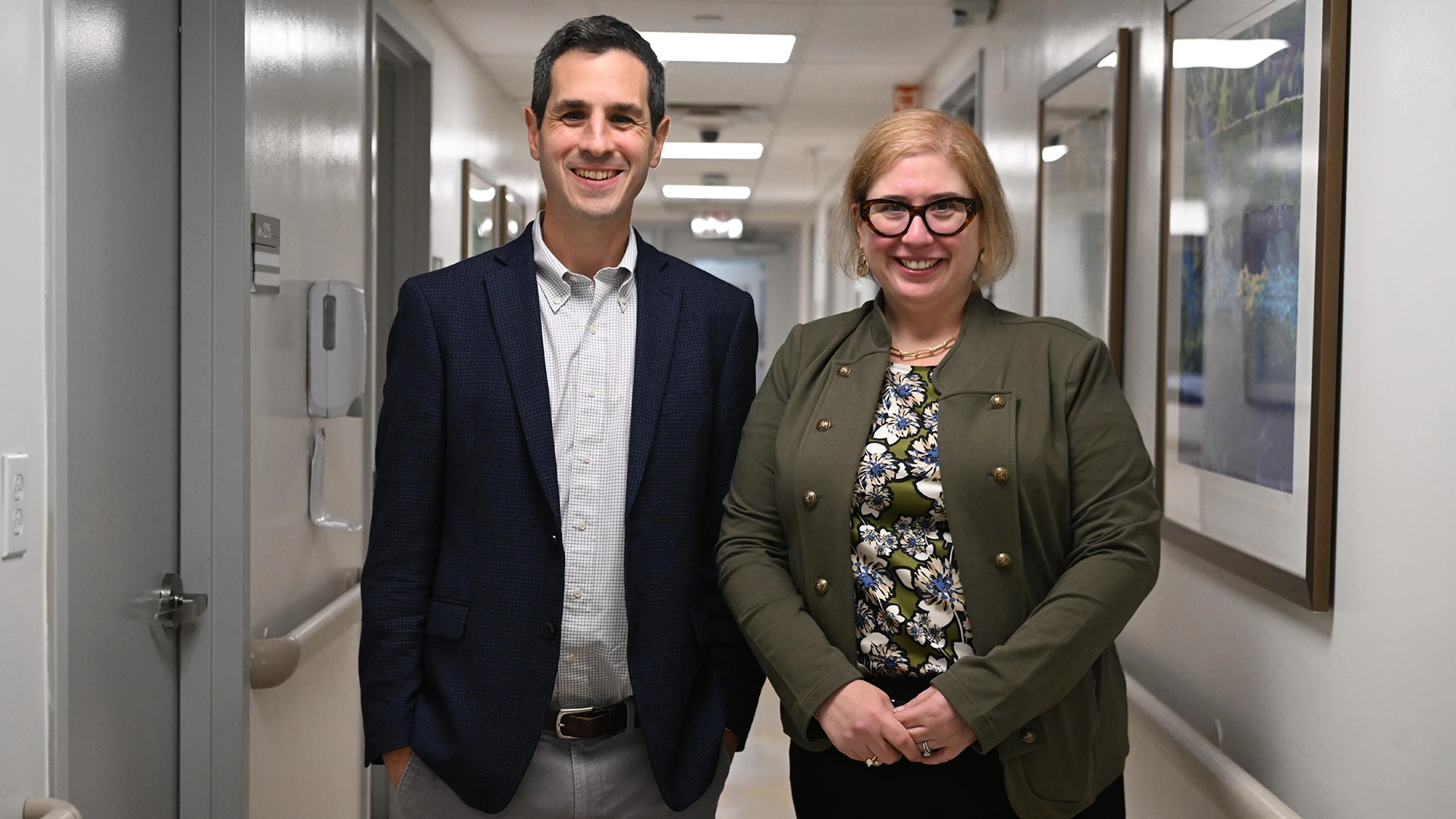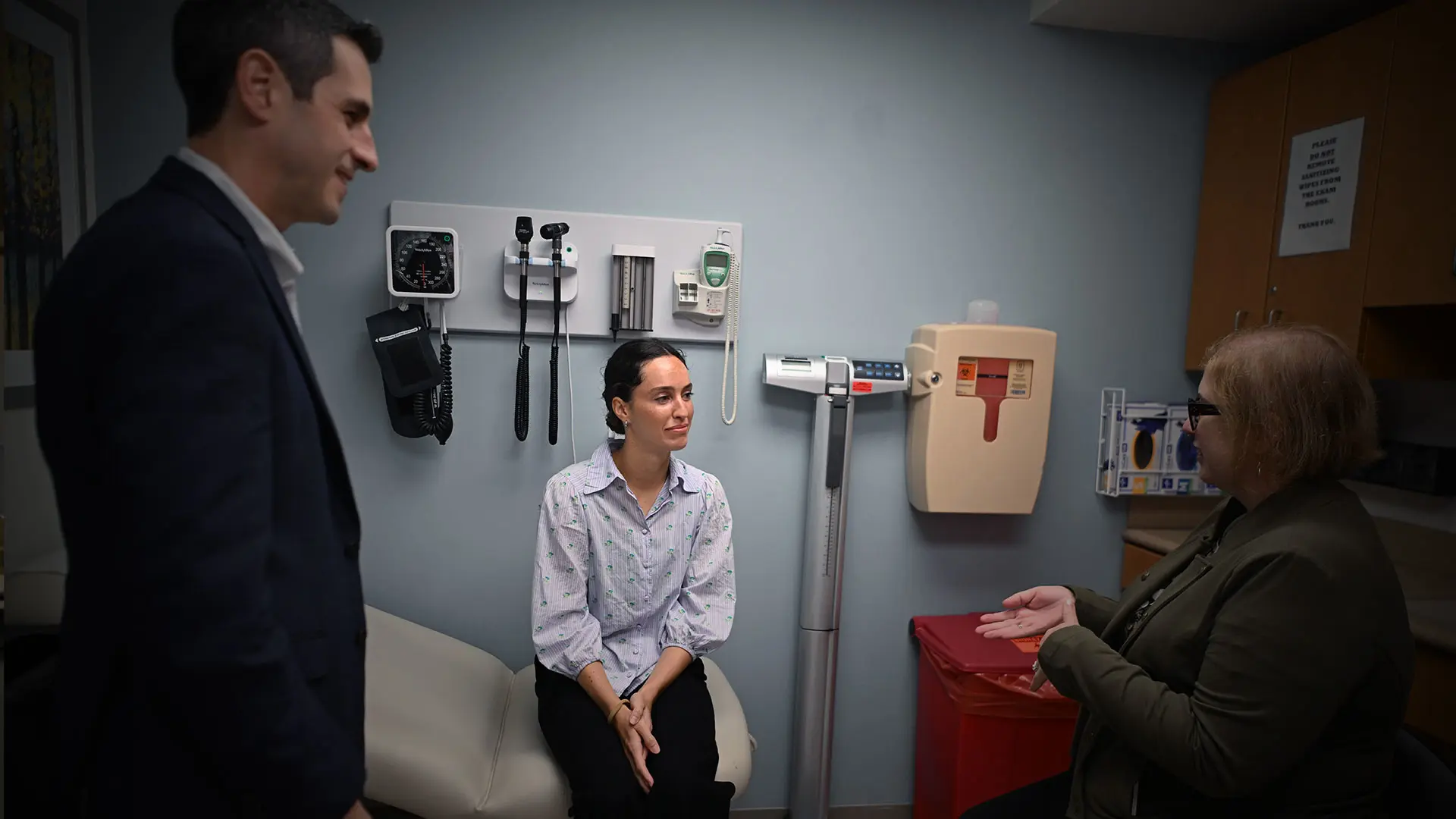Combining two biologic or small molecule immune therapies has increasingly been proposed as a pathway to better remission rates for people with inflammatory bowel disease (IBD). In practice, however, this dual approach is expensive and may increase side effects while offering uncertain long-term outcomes.
With these concerns in mind, Mount Sinai is introducing a different and highly promising new form of combination therapy. Instead of combining multiple immunosuppressant medicines, researchers and clinicians are joining traditional biologic therapy with a finely tuned program of brain-gut behavior therapy focused on building resilience in patients intent on controlling their Crohn’s disease (CD).
The holistic regimen is being put to a rigorous test in a new study known as CATHARSIS, the first-of-its-kind randomized controlled trial encompassing 170 people living with active CD to weigh its effectiveness on physical and emotional outcomes. The study, now enrolling, is being funded by a $1.5 million grant from The Leona M. and Harry B. Helmsley Charitable Trust.
“We want to explore more novel approaches that involve not just immunosuppressive therapy, but pathways that are often overlooked, such as the gut-brain-microbiome axis that—as growing scientific evidence shows—may result in a direct link between psychological stress and pro-inflammatory cells in the gut,” says Ryan Ungaro, MD, Associate Professor of Medicine (Gastroenterology) at the Icahn School of Medicine at Mount Sinai, and co-Principal Investigator of CATHARSIS. “Hopefully, this dual therapy can break the ceiling we’ve reached in our field with current IBD therapies so we can more effectively modulate the symptom burden of patients and improve the quality of their lives.”

Ryan Ungaro, MD, and Laurie Keefer, PhD, are developing a novel program that teaches patients with Crohn's disease how to assert themselves more effectively, manage their stress, follow their diets, and maintain a positive attitude as an adjunct to traditional biologic therapy.
CATHARSIS will build on the integrated model of mind-body care that has been practiced at the Susan and Leonard Feinstein IBD Clinical Center at Mount Sinai for a number of years with excellent results. The Mount Sinai program, known as Gaining Resilience Through Transitions or GRITT, provides a framework for a multidisciplinary team of nutritionists, behavioral health specialists, nurses, and pharmacists to give patients the tools and coping skills to manage their diets, reduce stress, and build resilience. More specifically, the playbook includes brain-gut behavior therapy to increase psychological flexibility, promote disease acceptance, and build self-reliance; personalized nutrition care aimed at remediation of malnutrition, increasing diversity of diet, and reducing food avoidance; and medication management strategies with counseling from a specialized IBD pharmacist on the use of biologics as well as complementary medications.
“People living with IBD experience psychological and emotional as well as disabling physical symptoms that prevent them from living their lives to the fullest,” notes Laurie Keefer, PhD, Professor of Medicine (Gastroenterology), and Psychiatry, at Icahn Mount Sinai, who oversees the resilience-based integrated care program and is co-Principal Investigator of CATHARSIS. “So our goal is to teach them ways to assert themselves more effectively, manage their stress, follow their diets, and maintain a positive attitude in order to set them up for a lifetime of successful disease management.”
Prior research, she adds, has shown that patients who undergo resilience training are less likely to develop depression and anxiety, which affects 30 percent of people with CD. They also experience a significant reduction in visits to the emergency department and hospitalization.
“We believe our new study will highlight that we can no longer disentangle mind and body in the ongoing care of IBD patients,” Dr. Keefer emphasizes, “and that it will confirm what patients and doctors are seeing as the real value of this interdisciplinary approach in treating a chronic, and often disabling, disease.”
